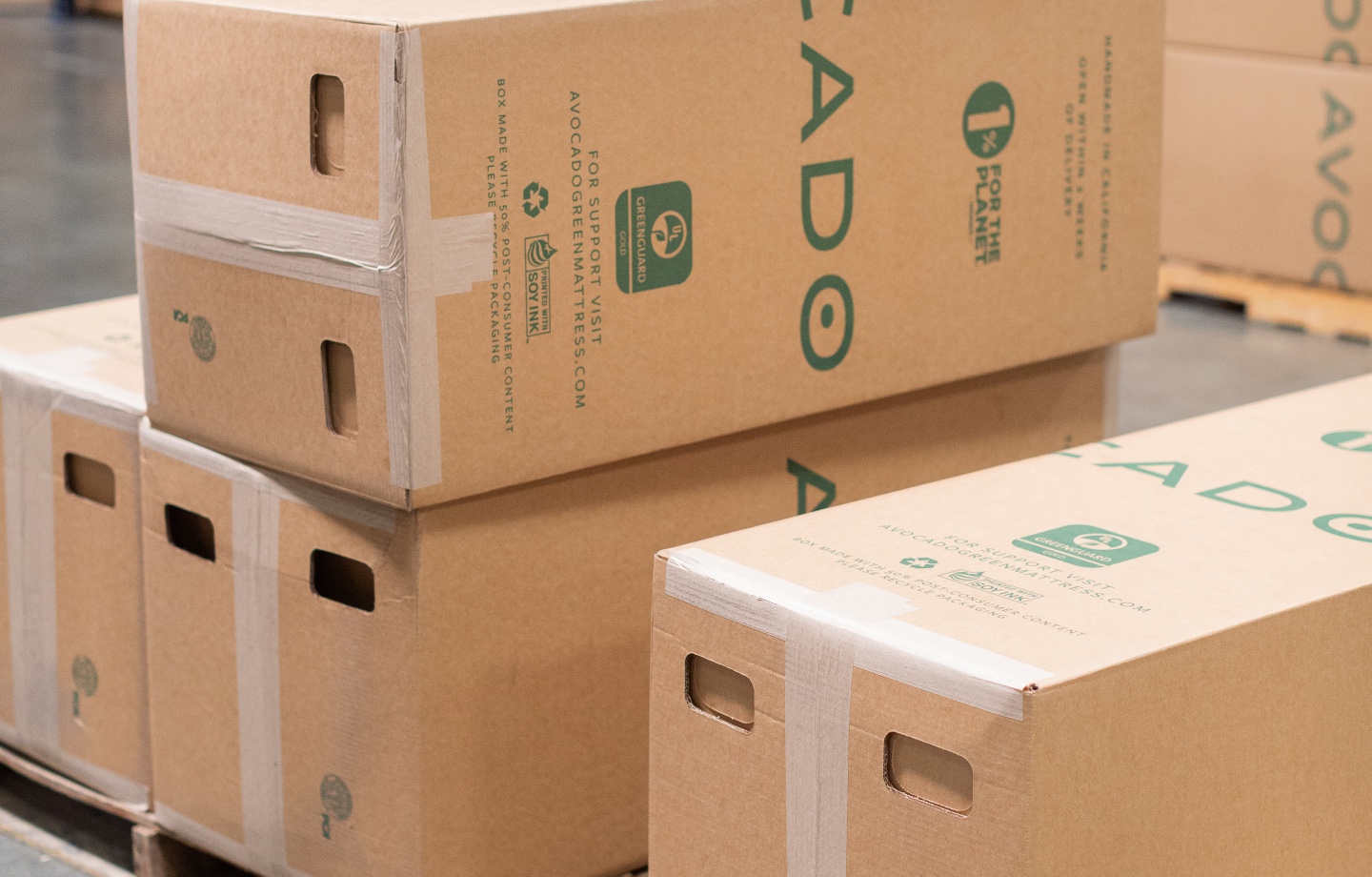Plastic is killing our planet. Here’s how Avocado is reducing plastic packaging for more sustainable options.
Plastic is everywhere. Straws, toys, storage containers, water bottles, and packaging. It’s not a stretch to understand why. Plastic is versatile, cost-effective, and durable — it’s the ideal material for keeping food fresh, padding fragile shipments, and ensuring products get from point A to point B intact. Our planet is also drowning it.
Companies like Avocado leverage recycled plastics, biodegradable bags, and recycled paper to reduce reliance on plastic packaging. But finding alternatives that are both heavy-duty and eco-friendly — particularly for large, heavy items like mattresses and furniture — is a challenge.
Right now, recycled plastic is having a moment. At Avocado, we pack our loungewear collections in recycled plastic bags, and big-name brands like Dove, Unilever, and PepsiCo utilize post-consumer recycled plastic bottles and packaging. The idea is to curb dependence on virgin plastics. The majority — 80 percent — of a plastic’s lifecycle emissions occur when it’s produced. One ton of recycled plastic, on the other hand, saves 5,774 Kwh of energy, 16.3 barrels of oil, 98 million BTUs of energy, and 30 cubic yards of landfill space.
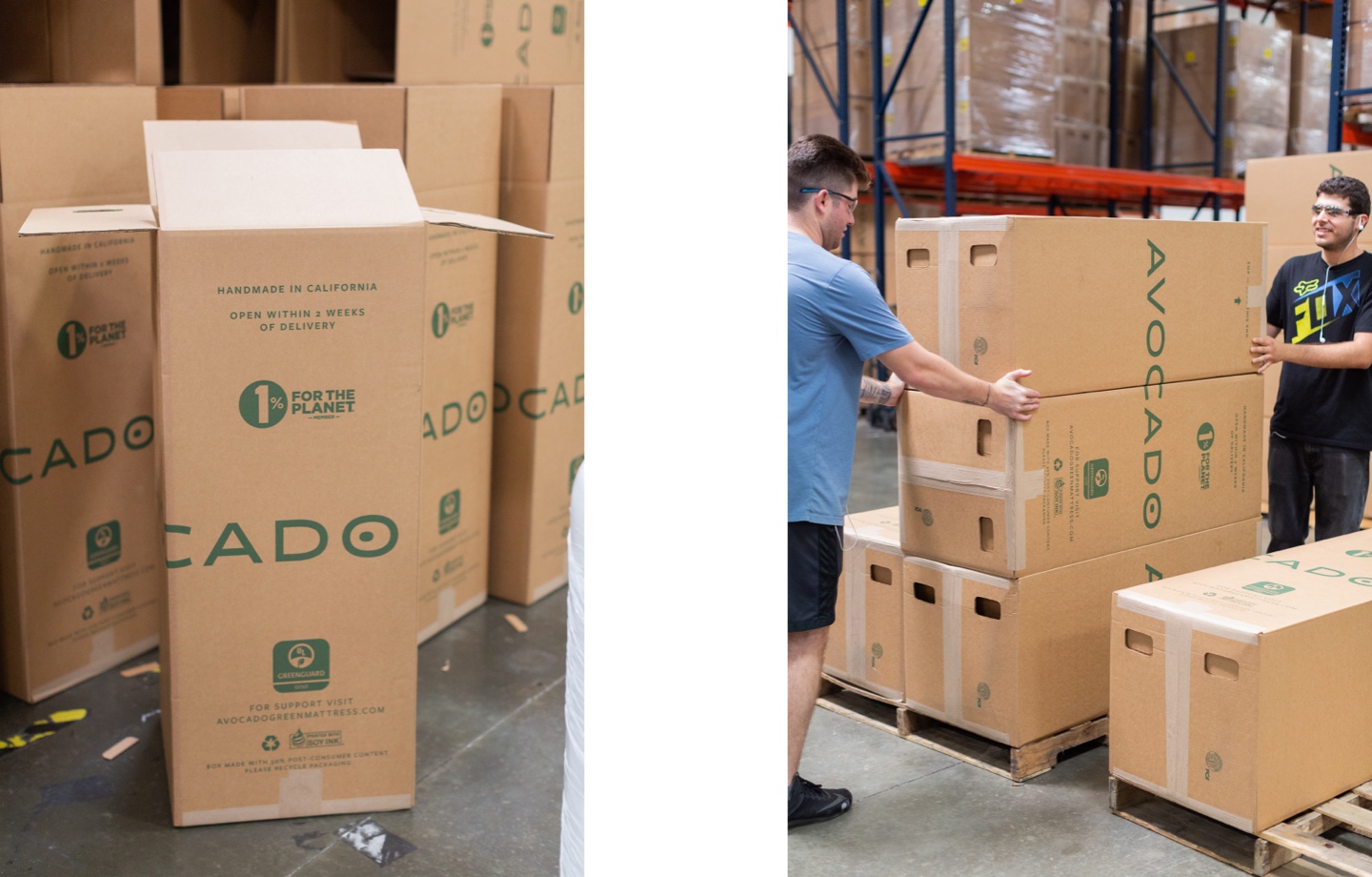
Read more: How Ocean-Bound Bottles Become Useful Stuff
Still, recycled plastic eventually ends up in landfills (only eight percent of plastic is recycled) where it takes hundreds of years to decompose and, in the meantime, emits the greenhouse gasses that cause climate change. And virgin plastics are cheaper to make. Beyond consumer demand and environmentalism, there’s no economic incentive for companies to invest in recycled plastic. And thanks to behemoths like Exxon Mobile and Dow — numbers one and three, respectively, among the top global plastic producers, recycled plastics make a negligible dent in the 130 million tons of single-use plastic produced each year.
Plus, due to our reliance on plastic packaging for food, pharmaceuticals, personal care items, and household products, the global market is projected to expand at a compound annual growth rate of 4.5 percent from 2022 to 2030. In 2021, the plastic packaging market value was $355 billion. Plastics are also expected to account for 20 percent of oil production by mid-century.
The solution to our planet-polluting plastic packaging nightmare? Choosing alternatives that eliminate plastic altogether.
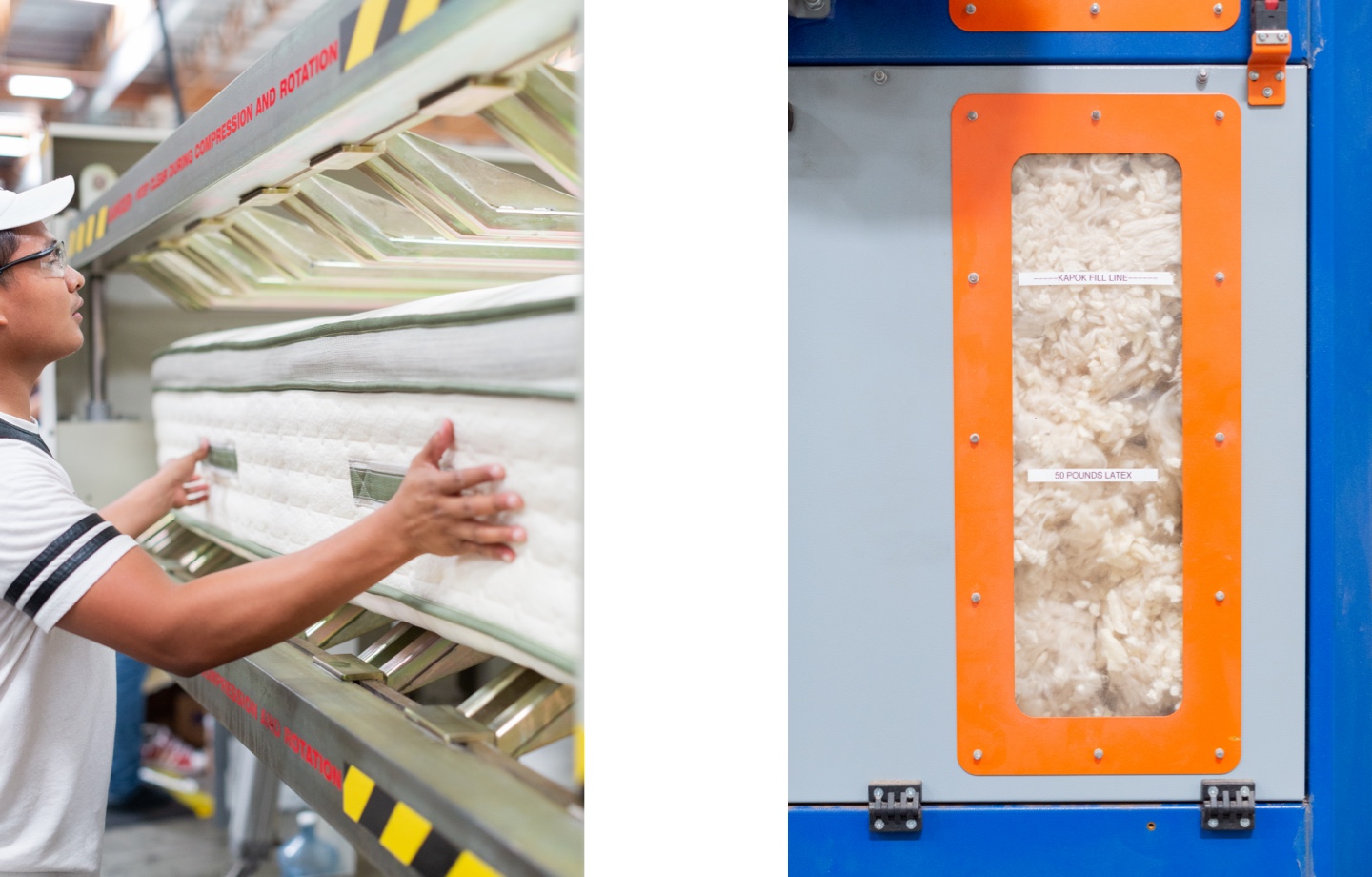
Read more: The Nonprofit Reducing Plastic Waste One Community at a Time
“It’s a balance between the most cost-effective way to make sure the customer gets their product without damage and how we can be as sustainable as possible,” says Oscar Ruiz, Avocado’s senior vice president of operations. “There’s a fine line because, obviously, if you wrap something in bubble wrap, it’ll get there — but it’s more important to find sustainable options that will still protect the product.”
At Avocado, we’re innovating ways to reduce our impact and implement more planet-friendly packaging. It’s part of our mission to be one of the most sustainable brands in the world and achieve our Zero Waste to Landfill certification by diverting more than 80 percent of our waste from the landfill.
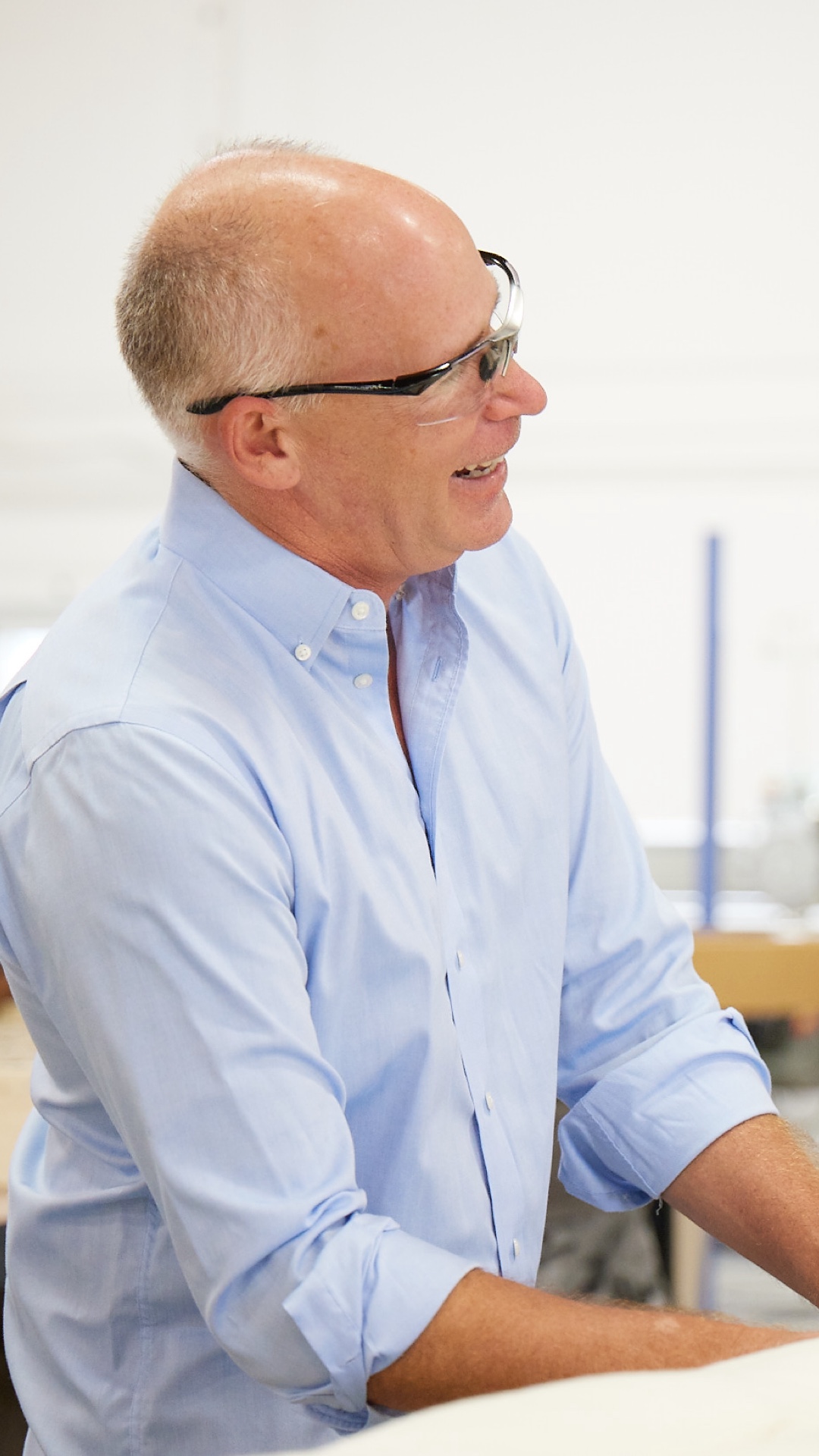 We started with our mattresses.
We started with our mattresses.
We bundle and recycle the quilt scraps we create when we make the top and bottom panels of our mattresses. All that scrap material is turned into carpet pads and other products commonly used in construction.
We apply this forward-thinking approach to our solid wood furniture, too. Rather than padding furniture with styrofoam packing peanuts or bubble wrap, we use recycled paper.
“We wrap the legs in recycled paper. We also have a machine that takes recycled paper rolls and crinkles them, then we fill the negative space in the box with that paper,” says Ruiz. “This helps minimize motion during shipping. We have to use a little bit of shrink wrap to tighten everything up, but instead of using styrofoam, we use this recycled paper.”
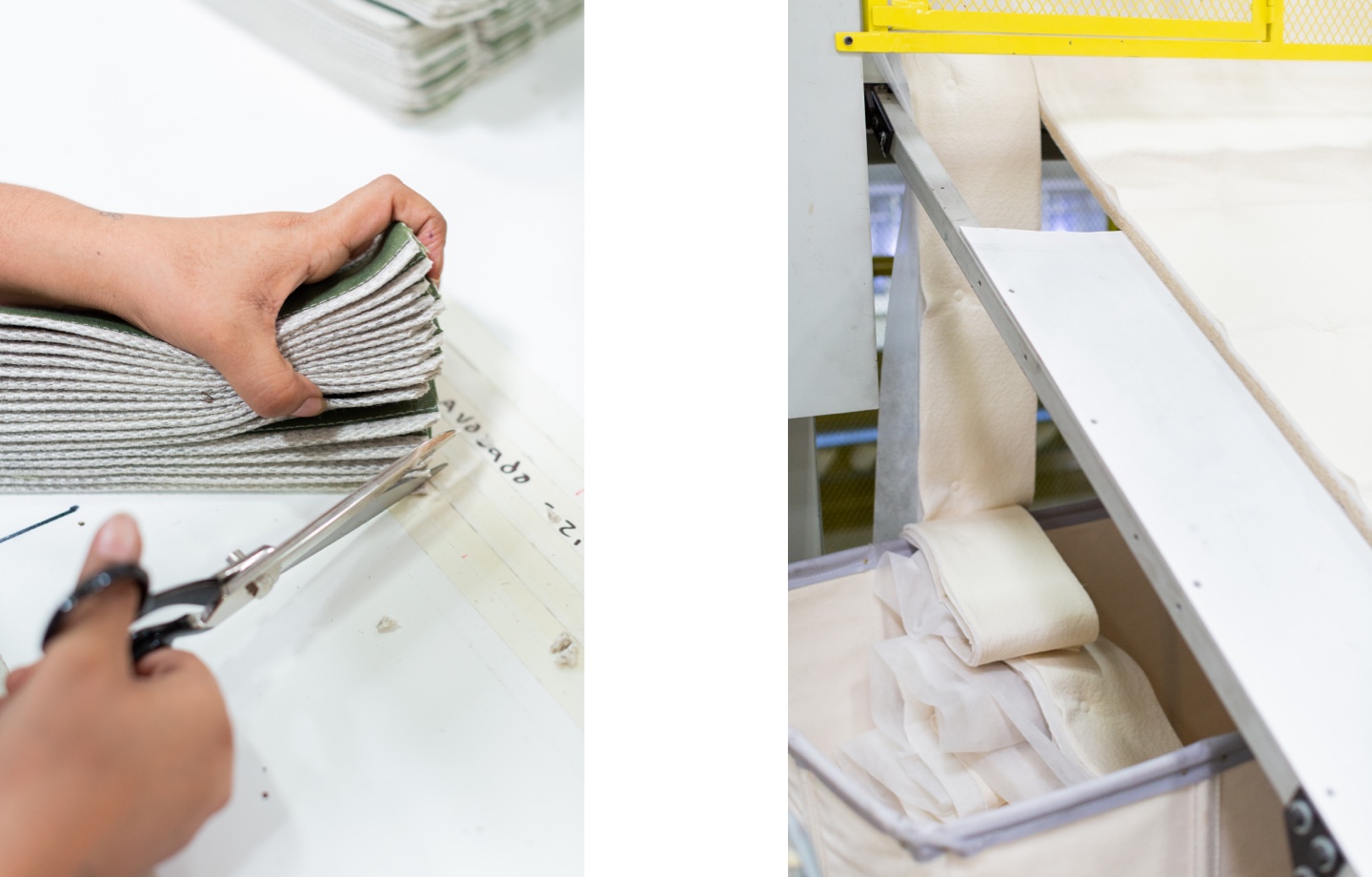
Read more: We Need to Cancel Plastics Now
The boxes themselves also pose a challenge. We utilize boxes made of recycled cardboard as much as possible, but the higher the percentage of recycled material, the less sturdy the box. Heavy mattresses and pieces of furniture with sharp edges require strong, reliable packaging. “The hardest thing is finding a sustainable material that is strong enough to handle what we’re trying to ship and the distances we’re trying to ship,” says Ruiz.
But recycled cardboard boxes are great for smaller items like our alpaca throws, protectors, and pillows. However, recycled cardboard is just one piece of the puzzle. To reduce our emissions — and the number of boxes we use — we’re investing in a variety of box sizes so we can pack and ship products like pillows and pillowcases together instead of individually.
And those recycled plastic bags to pack our loungewear? We’re in the process of switching them out for the same 100 percent compostable, biodegradable bio polybags we use for our certified organic bath towels. Our skin and body collection leverages sustainable packaging, too. Our Snoozy Bath Soak with Magnesium Flakes comes in a compostable paper pouch made from sustainably sourced forests, and our Supercharged Reishi Body Melt and Grounding Dry Body Oil come in recyclable containers made of mostly recycled glass.
We package these products not in plastic, but in cartons made with post-consumer waste paper — or paper that has been recycled and then reused to make our cartons.
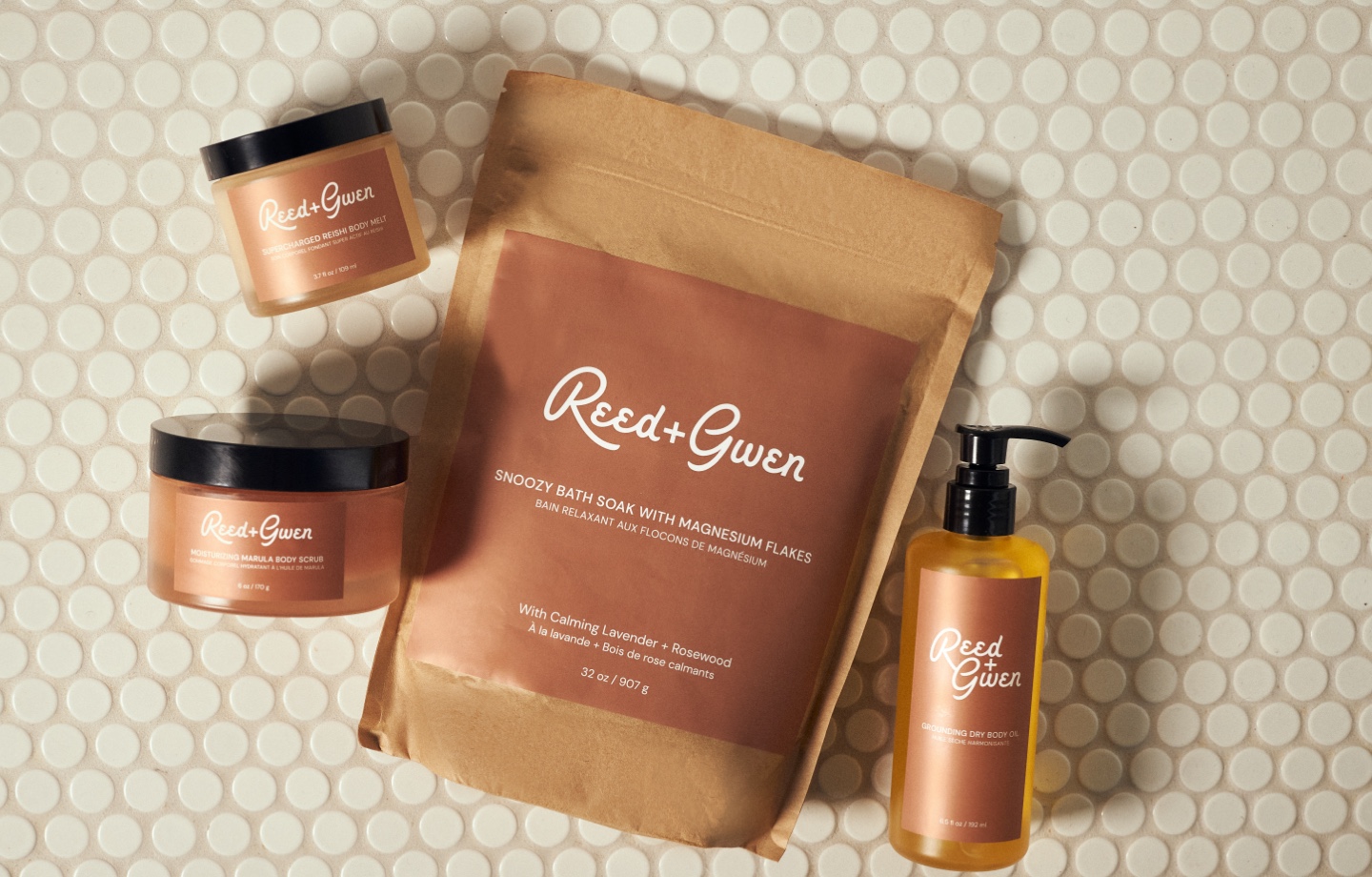
Read more: We Tried Plastic-Free July — Here’s How It Went
Have feedback on our story? Email [email protected] to let us know what you think!

Shop Pillows
The Essential Organic Pillow Collection
Gentle, breathable, non-toxic support.




